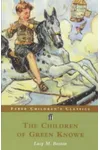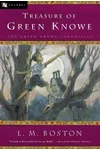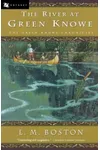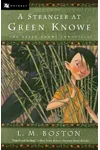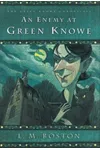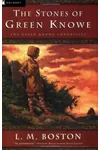Step into the enchanting world of Green Knowe, where an ancient manor hums with ghostly whispers and timeless magic! Lucy M. Boston’s Green Knowe series, a gem of children’s low fantasy, invites readers to a hauntingly beautiful house where past and present intertwine. Written in her sixties, Boston’s vivid tales capture the wonder of childhood and the allure of a home steeped in history.
First published in 1954, this six-book series follows young characters, like Toseland ‘Tolly’ Oldknow, as they uncover the secrets of Green Knowe, a fictional manor inspired by Boston’s own 12th-century home in Hemingford Grey, Cambridgeshire. With its blend of gentle spookiness and heartfelt storytelling, Green Knowe has charmed generations, earning Boston the prestigious Carnegie Medal.
How Green Knowe Began
Lucy M. Boston, born in 1892, didn’t start writing until her sixties, pouring her love for her historic home, The Manor, into the Green Knowe series. After moving to Hemingford Grey in 1939, she restored the decaying manor and its gardens, which became the heart of her stories. Boston imagined the lives of children who might have lived there centuries ago, weaving their spirits into her narratives. Her son, Peter Boston, illustrated the books, his evocative drawings bringing the manor’s nooks and crannies to life.
The series began with The Children of Green Knowe, sparked by Boston’s fascination with her home’s history and her desire to craft stories that bridged time. Her background as an artist and gardener infused her writing with rich, sensory details, making Green Knowe a character in its own right.
The Heart of Green Knowe
The series kicks off with The Children of Green Knowe (1954), where young Tolly arrives at his great-grandmother’s flood-bound manor for Christmas. As Mrs. Oldknow shares family tales, Tolly meets the spirits of three children—Toby, Alexander, and Linnet—who lived during Charles II’s reign. Their playful presence and the house’s magic create a cozy yet eerie adventure. The Chimneys of Green Knowe (1958) follows Tolly’s summer visit, unraveling the story of blind Susan Oldknow and her companion Jacob, rescued from slavery, as they face a manor fire and missing jewels.
A Stranger at Green Knowe (1961), a Carnegie Medal winner, shifts focus to Ping, a refugee boy who bonds with an escaped gorilla, Hanno, at Green Knowe. This poignant tale explores displacement and compassion, showcasing Boston’s ability to tackle deep themes. The Stones of Green Knowe (1976) rounds out the series, tracing Roger, a Norman boy, who uses magical stone thrones to travel through time, connecting all the series’ children across centuries.
Boston’s stories blend history, fantasy, and mystery, with themes of belonging, memory, and the enduring power of place. Green Knowe itself acts as a sanctuary, protecting its inhabitants—both living and ghostly—from a changing world. Her lyrical prose and the manor’s vivid setting, from its topiary gardens to its creaky attic, immerse readers in a world where time feels fluid.
Why Green Knowe Resonates
The Green Knowe series has left a lasting mark on children’s literature, praised for its subtle magic and emotional depth. Critics, like Anthony Boucher, called the first book ‘sheer literary magic,’ while Victor Watson hailed A Stranger at Green Knowe as a masterpiece. Its influence echoes in works like J.K. Rowling’s Harry Potter, with parallels in Tolly’s train journey and boat crossing to Green Knowe. Adapted into a 1986 BBC series and a 2009 film, From Time to Time, the series continues to captivate.
Its timeless appeal lies in its celebration of imagination and connection. Green Knowe’s stories remind readers that homes hold memories that linger, offering comfort in a chaotic world. For young readers and nostalgic adults, Boston’s world remains a magical escape.
- Publication Years: 1954–1976
- Number of Books: Six
- Awards: Carnegie Medal for A Stranger at Green Knowe (1961)
- Setting: Fictional Green Knowe, based on The Manor, Hemingford Grey
Dust off The Children of Green Knowe and step into Lucy M. Boston’s spellbinding world, where ghosts, magic, and a timeless manor await your adventure!
